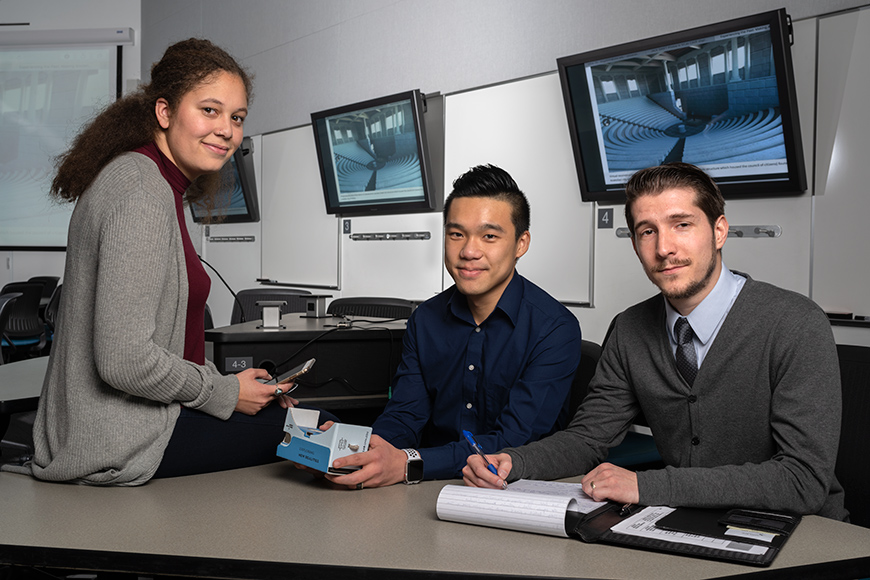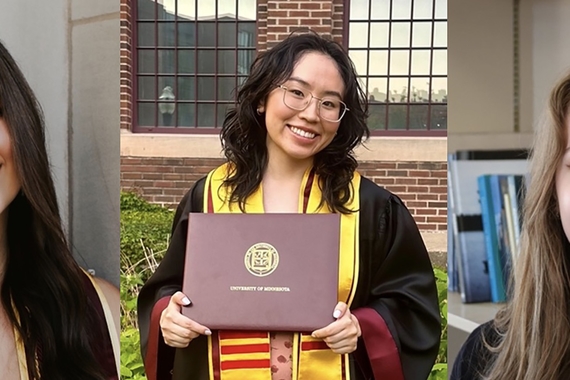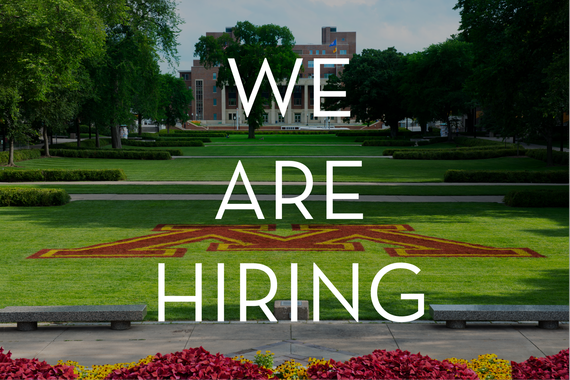On Purpose: Portrait of Writing Studies

Writing is a fundamental human activity that is rhetorical, social, global, and technological. To write is to define the world around us and create knowledge with others. In the Department of Writing Studies, we examine ways that writing is applied in the world—how it is shaped rhetorically, how it reflects meaning, and how it generates action within and among communities. We examine writing studies as a discipline involving past, present, and future.
Regarding the past, classical rhetorical theory is foundational to the study and practice of writing for its insights on audience, persuasion, invention, arrangement, delivery, and style. Contemporary rhetorical theory helps us examine persuasion as well as other emerging forms of communication. We study these historical foundations, understanding that all written communication occurs in a rhetorical context where audience, author(s), and message interact.
Regarding the present, we explore writing as an engaged and social activity in multiple contexts such as business, technology, science, health, law, and public spaces. Students are an integral part of our scholarly community. Through a student-centered approach, we invite students to work with us as we examine theoretical roots of writing as well as new applications of writing that continue to evolve. To foster engagement, we often teach in active learning spaces that facilitate collaborative work where students work together to practice writing. Students gain experience with writing activities such as drafting, revising, and editing, and they bring various technologies into the classroom to access information and complete assignments.
Regarding the future, we study ways that writing has evolved technologically. Some might say writing itself is a technology—from papyrus to print to digital to multimodal formats. Writing continues to evolve in the digital age as software, applications, social media, and internet technologies change and advance, and writers must develop critical awareness of technologies and their reach. This awareness strengthens career readiness by helping students understand the importance of writing and communication in our interconnected world.
We are recognized nationally and internationally for our faculty research, teaching excellence, and degree programs in rhetoric, writing studies, and technical communication. Our faculty have expertise in rhetorical theory, internet studies and digital writing, scientific and technical writing and communication, composition and writing pedagogy, and feminist rhetorics. Our BS, MS, MA, and PhD degree programs in technical communication address the intersection of rhetoric, writing, and technical communication and investigate rhetorical theory and applied writing practices. Our department is also home to the University’s Center for Writing as well as the First-Year Writing (FYW) program.


